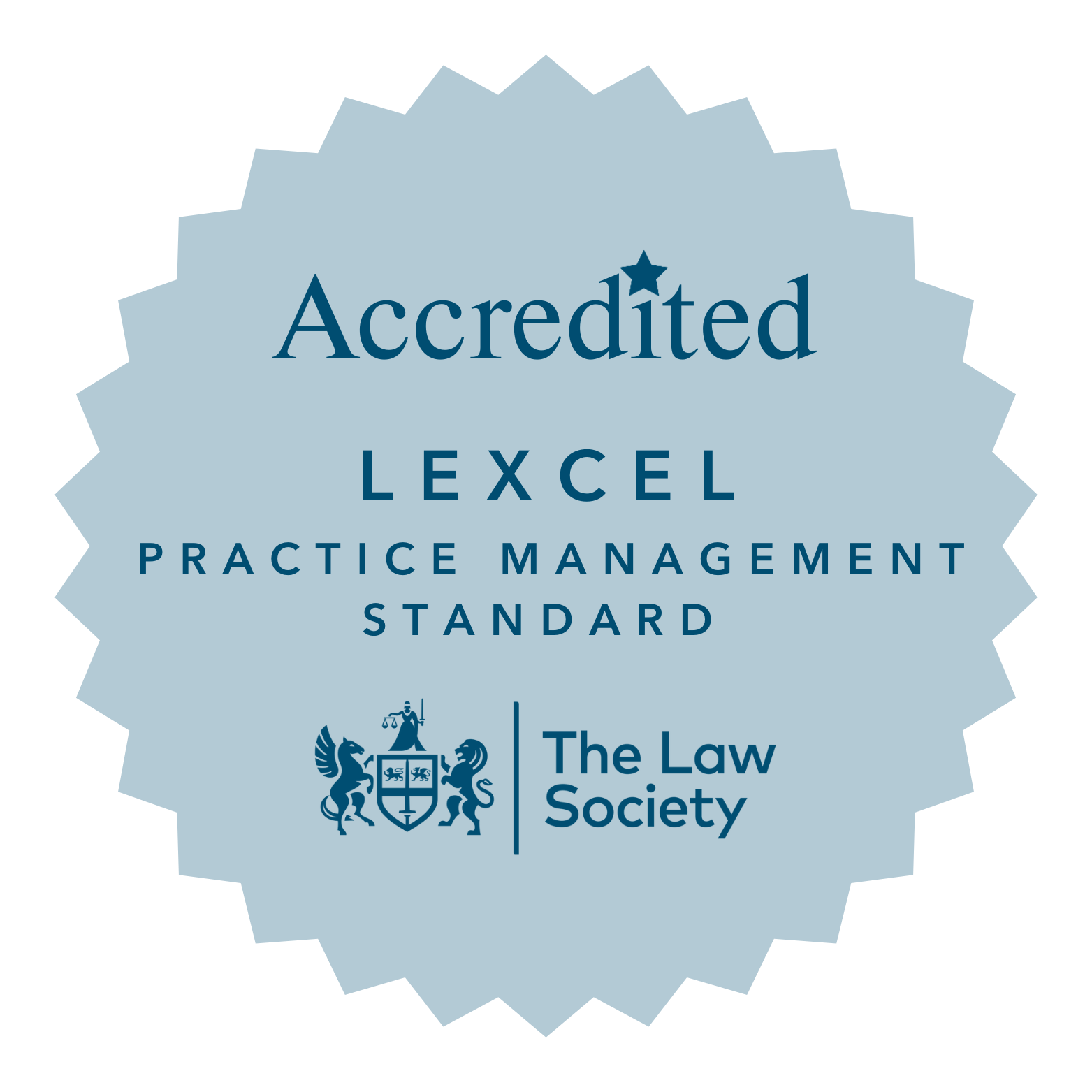Right of First Refusal
If you are own a leasehold property, then you may have the right of first refusal if your landlord or freeholder decides to sell the freehold.
For flat owners, there are several advantages to owning the freehold. You will be able to grant yourselves longer leases, preserving the value of your property, and you can also make your own arrangements for insurance and maintenance as well as your own management rules and regulations.
At Gibson Young Solicitors, we represent clients in respect of freehold sales and purchases. There is a set procedure that must be followed in respect of the right of first refusal and we will make sure the correct notices are served and that your rights and interests are protected.
The right of first refusal exists under the Landlord and Tenant Act 1987 and provides that where a landlord intends to sell his interest in a property that contains flats, he must offer it for sale to the tenants first, before putting it on the open market.
It is a criminal offence for a landlord to fail to follow the correct process in selling a freehold and penalties include a fine of up to £5,000.
Right of first refusal law is fairly complicated and it is recommended that you are represented by an experienced leasehold property solicitor to avoid errors or taking on a problematic freehold.
Contact our London SW15 solicitors about the right of first refusal.
If you would like to speak to an expert right of first refusal solicitor in London SW15 or W4, ring us on 020 7924 2919, email us at reception@gibsonyoungsolicitors.com
or fill out our Contact Form.
For information about our other related services, please see Residential Property.
How our London SW15 lawyers can help with the right of first refusal.
Our residential property team deal extensively with leasehold and freehold issues in London and have an in-depth understanding of the legal requirements and pitfalls in this complex area of law. If you wish to offer or accept the right of first refusal, we can represent you to ensure the right steps are followed and that your transaction is successful.
Our right of first refusal lawyers offer the following services:
• Serving a notice on the leaseholders under section 5 of the Landlord and Tenant Act advising them that as a landlord you intend to sell your freehold interest and offering them the right of first refusal to buy
• Representing tenants who have received a section 5 right of first refusal notice
• Advising tenants of their rights and responding with a section 6 notice on their behalf by the statutory deadline where they wish to purchase the freehold
• Investigating the legal title to the freehold interest on behalf of purchasing tenants
• Advising tenants on the way in which they will hold the freehold interest, for example, as individuals or as a limited company created to deal with management of the property
• Creating a limited company on behalf of the tenants, to include appointing directors and a company secretary
• Drafting or approving a contract for sale of the freehold interest
• Dealing with the purchase transaction on behalf of the freeholder or tenants
• Registering the change of ownership of the freehold with HM Land Registry
• Advice in respect of a landlord’s failure to follow the correct process in dealing with the right of first refusal
• Right of first refusal dispute resolution
• Representing tenants where a landlord has failed to offer a right of first refusal or breached the law in this area
Right of first refusal FAQs
Who qualifies for the right of first refusal to buy a freehold?
To qualify for the right of first refusal in respect of the purchase of a freehold interest, the following must apply:
• There must be at least two flats in the building
• More than half of the flats must be owned by ‘qualifying tenants’
• No more than half of the building can be under non-residential use
What is a qualifying tenant?
To be a qualifying tenant, a leasehold property owner will need to hold a fixed or periodic tenancy. Tenancies that do not qualify include shorthold tenancies, business or agricultural tenancies and any tenancy that has been granted as part of employment.
Where a tenant occupies three or more flats in the building, they are not a qualifying tenant.
What is the right of first refusal legal definition and process?
The right of first refusal is the right under the Landlord and Tenant Act for a qualifying tenant to be offered the freehold interest in their property by their landlord before it is offered on the open market.
If a landlord wishes to dispose of their leasehold interest and the right of first refusal exists, they need to serve an offer notice under section 5 of the Landlord and Tenant Act. It needs to be served on at least 90% of the tenants or, where there are less than ten, on all but one of them.
The notice should include the following details:
• The landlord’s terms, to include details of the interest that is being sold, the price and the amount required by way of deposit, which cannot exceed 10% of the price.
• Confirmation that the notice is an offer to enter into a contract
• The deadline for acceptance of the offer, which must be no less than two months from the date of service of the notice
• The time limit for the tenants to nominate a named purchaser, such as a management company, which must be at least a further two months.
Once the landlord has been given the name, they have one month in which to issue the contract.
Once the tenants have received the contract, they have two months in which to sign and return it to the landlord together with their deposit. The landlord then has seven days from receipt of the contract and the deposit in which to exchange contracts.
It is highly recommended that this process is dealt with by experienced leasehold right of first refusal solicitors so that the necessary undertakings can be given with regard to the deposit and exchange.
How do I take up a right of first refusal?
If you are a tenant who has received a right of first refusal, then in order to accept, a majority of tenants must agree and serve a notice of acceptance on the landlord.
What happens if the tenants do not take up the right of first refusal?
The landlord is free to sell the freehold interest if the tenants decline the offer, however it cannot be sold for a lower price or on different terms to those offered to the tenants during the year following the offer.
Can I force my landlord to sell the freehold?
If you are a leaseholder with a lease of 21 years or more, you may be entitled to purchase the freehold of the property with your fellow leaseholders, even if the landlord has not offered it for sale. This is a process known as collective enfranchisement and is different to right of first refusal as it is initiated by the tenants.
Is it cheaper to buy a freehold by way of right of first refusal or through collective enfranchisement?
The price offered in a right of first refusal is set by the landlord. They do not have to negotiate this price and it cannot be challenged at a tribunal or court. It will generally be based on what the landlord believes he could achieve on the open market and the landlord is prohibited from selling within twelve months of their offer at a lower price. This does not prevent the landlord from attempting to sell by right of first refusal at a price above market value if they believe that the tenants may accept the offer.
Tenants who receive an offer under their right of first refusal may wish to seek a professional valuation of the freehold interest.
The tenant does not have to pay the landlord’s costs under the right of first refusal process, whereas under the collective enfranchisement mechanism, the tenants are required to pay the landlord’s reasonable legal costs and reasonable valuation fee.
The right of first refusal offers more certainty for tenants than collective enfranchisement, with the price in respect of the latter only known after a lengthy process of valuation, negotiation and possible legal proceedings.
Can the landlord withdraw their offer to sell a freehold after offering the right of first refusal?
The landlord can withdraw a right of first refusal offer, even after the tenants have accepted it. The landlord will need to serve a withdrawal notice and may be liable for costs, depending on how far along the transaction is at the time of withdrawal.
Once the landlord has withdrawn, they cannot otherwise dispose of the freehold interest for a period of one year from the date of service of the withdrawal notice.
Contact our expert London right of first refusal solicitors SW15 and W4.
At Gibson Young Solicitors, we offer both legal expertise and outstanding client service. We are friendly and approachable and our advice is clear and straightforward.
If you would like to speak to an expert right of first refusal lawyer, ring us on 020 7924 2919, email us at reception@gibsonyoungsolicitors.com
or fill out our Contact Form. All initial enquiries are free of charge and without any obligation.
Putney Office:
1 & 2 Crescent Stables, 139 Upper Richmond Road, Putney, London SW15 2TN









